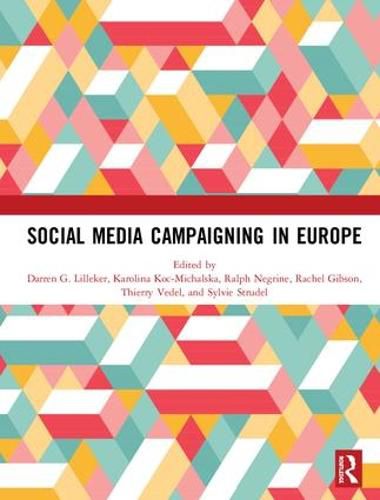Readings Newsletter
Become a Readings Member to make your shopping experience even easier.
Sign in or sign up for free!
You’re not far away from qualifying for FREE standard shipping within Australia
You’ve qualified for FREE standard shipping within Australia
The cart is loading…






Studies of election campaigns have shown an increased employment of websites, weblog tools, email, and social media by political campaigners, as well as the use of similar platforms by citizens to find information, communicate about elections or engage more generally in political issues. This comprehensive volume explores the ways in which social media is used on the one hand as a campaigning tool, and on the other, by local citizens. It aims to develop a more holistic and Eurocentric research agenda by capturing both supply and demand practices at the European level. The authors employ both single and multination case studies, furthering debates on how political actors and voters embrace the new information and communication environment, in what ways, and for what purposes. The book offers new perspectives on social media campaigning within European democracies, thereby contributing to a more global and comprehensive understanding of how campaigning is affected, and might be enhanced, by developing an interactive digital strategy.
This book will be of great interest to students of both politics and media studies. It was originally published as a special issue of the Journal of Information Technology & Politics.
$9.00 standard shipping within Australia
FREE standard shipping within Australia for orders over $100.00
Express & International shipping calculated at checkout
Studies of election campaigns have shown an increased employment of websites, weblog tools, email, and social media by political campaigners, as well as the use of similar platforms by citizens to find information, communicate about elections or engage more generally in political issues. This comprehensive volume explores the ways in which social media is used on the one hand as a campaigning tool, and on the other, by local citizens. It aims to develop a more holistic and Eurocentric research agenda by capturing both supply and demand practices at the European level. The authors employ both single and multination case studies, furthering debates on how political actors and voters embrace the new information and communication environment, in what ways, and for what purposes. The book offers new perspectives on social media campaigning within European democracies, thereby contributing to a more global and comprehensive understanding of how campaigning is affected, and might be enhanced, by developing an interactive digital strategy.
This book will be of great interest to students of both politics and media studies. It was originally published as a special issue of the Journal of Information Technology & Politics.